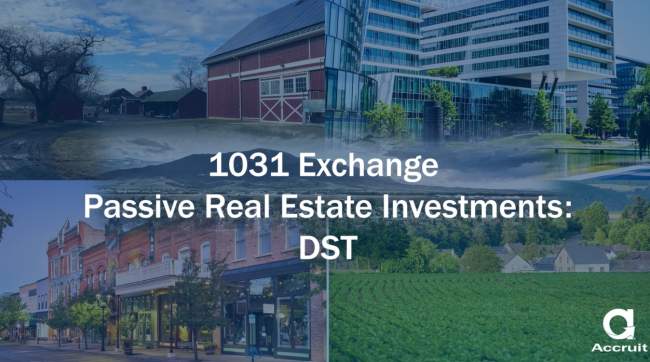BLOG
Video: DSTs as Replacement Property in a 1031 Exchange

In our previous video on passive real estate investments, we discussed what passive real estate investments are, how they differ from active investments, the benefits they offer investors, as well as types of passive investments including Triple Net Leases (NNNs), Tenants-in-Common (TICs), and Delaware Statutory Trusts (DSTs). In this video, we take a deeper look at one of those passive real estate investment options: Delaware Statutory Trusts (DSTs).
A A Delaware Statutory Trust is a real estate investment vehicle that provides investors with access to investment grade real estate that is generally larger than they could have acquired on their own. The Taxpayer acquires a fractional interest (see below) in the property. Use of DSTs in 1031 exchanges was approved by the IRS in Revenue Procedure 2004-86. Delaware Statutory Trust (DST) is a legally recognized trust created under Delaware law. In a DST, investors, also known as beneficiaries, hold fractional “beneficial interests” in the trust, with their ownership percentage determined by their equity investment. DSTs provide a passive real estate investment opportunity, allowing investors to benefit from investment grade property that they generally could not access on their own without the burden of active management.
In this educational video, as well as this blog, learn more about this hands-off investment strategy and how it offers diversification, passive income, and tax deferral without the complexities of direct property management.

